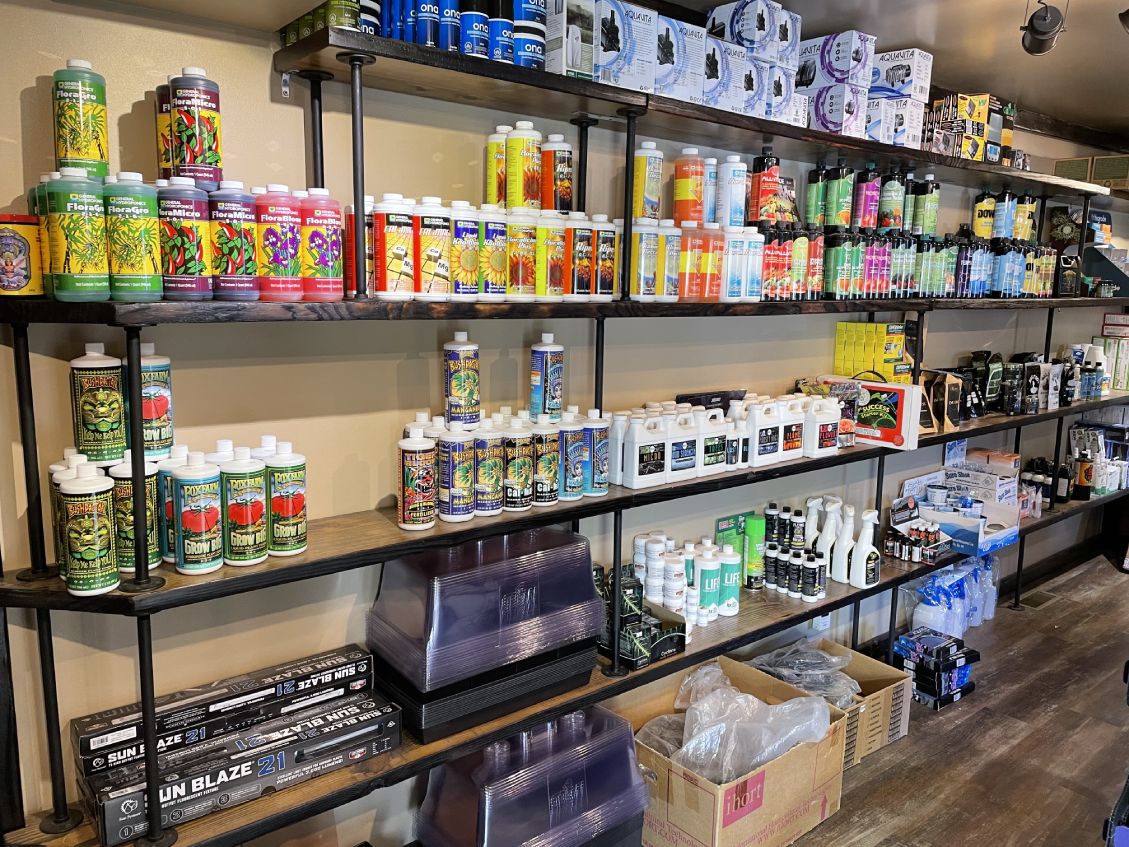Unleash Your Green Thumb: The Indoor Earthworm's Planting Process Demystified
Unleash Your Green Thumb: The Indoor Earthworm's Planting Process Demystified
Blog Article
Enhance Your Horticulture Abilities With Hydroponics: Exploring Advantages
The technique of cultivating plants without dirt might seem unconventional at first, yet its benefits are worth taking into consideration. As we delve into the world of hydroponic gardening, we uncover a plethora of benefits that not just enhance plant development however likewise supply unique opportunities for people looking to elevate their horticulture abilities.
Benefits of Hydroponic Horticulture
Hydroponic gardening uses many advantages because of its reliable use resources and accurate control over plant development conditions. By providing plants with straight access to nutrients dissolved in water, hydroponic systems remove the requirement for soil, reducing water use by approximately 90% compared to standard soil-based farming. This effective nutrient shipment method likewise enables faster plant growth rates and higher returns, making hydroponic gardening an eye-catching alternative for maximizing limited space and resources.
Additionally, the controlled setting of hydroponic systems enables farmers to enhance factors such as ph, temperature level, and moisture degrees, causing much healthier plants with lowered threat of pests and conditions. This precise control over expanding conditions not just advertises much faster and more consistent plant development yet additionally enables for year-round farming no matter external weather.
Faster Plant Growth With Hydroponics
Utilizing advanced nutrient shipment systems, hydroponic horticulture helps with accelerated plant development rates contrasted to conventional soil-based cultivation methods. In hydroponic systems, plants have straight accessibility to essential nutrients dissolved in water, enabling ideal absorption without the requirement to use up power developing comprehensive origin systems to look for nutrients in the soil. This reliable nutrient distribution device allows plants to reroute their energy in the direction of robust vegetative growth and respected fruiting or blooming.
In addition, the regulated atmosphere in hydroponic arrangements makes certain that plants get the perfect conditions for development continually. Variables such as temperature level, humidity, ph, and light levels can be meticulously kept track of and adapted to create the ideal growing environment for each plant range. By eliminating the irregularity present in soil-based horticulture, hydroponic systems offer plants with a secure and favorable setting that maximizes their development potential.

Water Conservation Benefits
Offered the efficient nutrient distribution system and regulated setting of hydroponic systems, one significant advantage worth discovering is the conservation of water resources. Hydroponic gardening makes use of up to 90% much less water compared to typical soil-based gardening methods. This significant reduction is associated to the closed-loop system where water is recirculated and reused, decreasing waste. In traditional dirt gardening, water is lost via evaporation, drainage, and percolation past the root zone, causing inadequacies. In hydroponics, the nutrient service is provided directly to the plant origins, making certain optimal water uptake and lowering water loss.
In addition, hydroponic systems allow for accurate control over useful reference water use, with the capability to adjust and check nutrient degrees based on plant requirements. This targeted strategy avoids overwatering, an usual issue in soil-based horticulture, additional contributing to water conservation efforts. By making best use of water effectiveness and reducing waste, hydroponic gardening offers itself as a lasting and environmentally friendly choice for people aiming to minimize their water intake in horticulture practices.
Year-Round Plant Cultivation

By managing variables such as light, nutrient, and temperature level degrees, hydroponic systems allow plants to thrive despite external weather. This consistent environment enables continual plant growth and harvest, offering a trusted supply of fresh fruit and vegetables also in the dead of winter months.
Furthermore, the capacity to cultivate plants year-round in hydroponic systems opens opportunities for cultivators to you could try here explore a broader range of crops, increase their expanding periods, and rise general efficiency. This adaptability and integrity make year-round plant growing in hydroponics a beneficial tool for both enthusiasts and industrial growers aiming to optimize their horticulture efforts.
Enhancing Horticulture Abilities Through Hydroponics
Creating effectiveness in hydroponics can equip gardeners with a deeper understanding of plant growing techniques and enhance their total gardening skills. Hydroponic systems give a regulated environment where gardeners can very closely keep an eye on and change aspects such as nutrient degrees, pH equilibrium, and lights conditions to optimize plant development. By grasping these components, garden enthusiasts can fine-tune their skills and knowledge, bring about even more effective harvests and healthier plants.
Additionally, hydroponic horticulture difficulties conventional notions of soil-based growing, urging gardeners to believe outside package and trying out ingenious growing approaches. This testing can promote imagination and analytical abilities, as gardeners find out to adapt and troubleshoot concerns special to hydroponic systems. In addition, the performance of hydroponic arrangements, such as vertical gardens or nutrient film strategies, can instruct garden enthusiasts just how to make the most of room and resources effectively.
Final Thought
In verdict, hydroponic gardening offers various benefits such as faster plant development, water preservation, and year-round cultivation. By exploring the benefits of hydroponics, people can boost their horticulture skills and achieve effective site link plant development. Take into consideration incorporating hydroponic strategies right into your horticulture practices to make best use of effectiveness and efficiency in your garden.
As we dig into the world of hydroponic gardening, we reveal a variety of advantages that not only enhance plant growth yet also supply one-of-a-kind chances for individuals looking to raise their horticulture abilities.Making use of advanced nutrient distribution systems, hydroponic horticulture promotes sped up plant development prices compared to conventional soil-based cultivation techniques. By getting rid of the irregularity present in soil-based horticulture, hydroponic systems provide plants with a favorable and stable setting that optimizes their growth capacity.
Enhancing the sustainability and performance of gardening practices, year-round plant cultivation in hydroponic systems supplies a regular and trusted method for cultivating a range of crops no matter of seasonal limitations. The Indoor Earthworm.In conclusion, hydroponic gardening uses countless benefits such as faster plant growth, water preservation, and year-round farming
Report this page